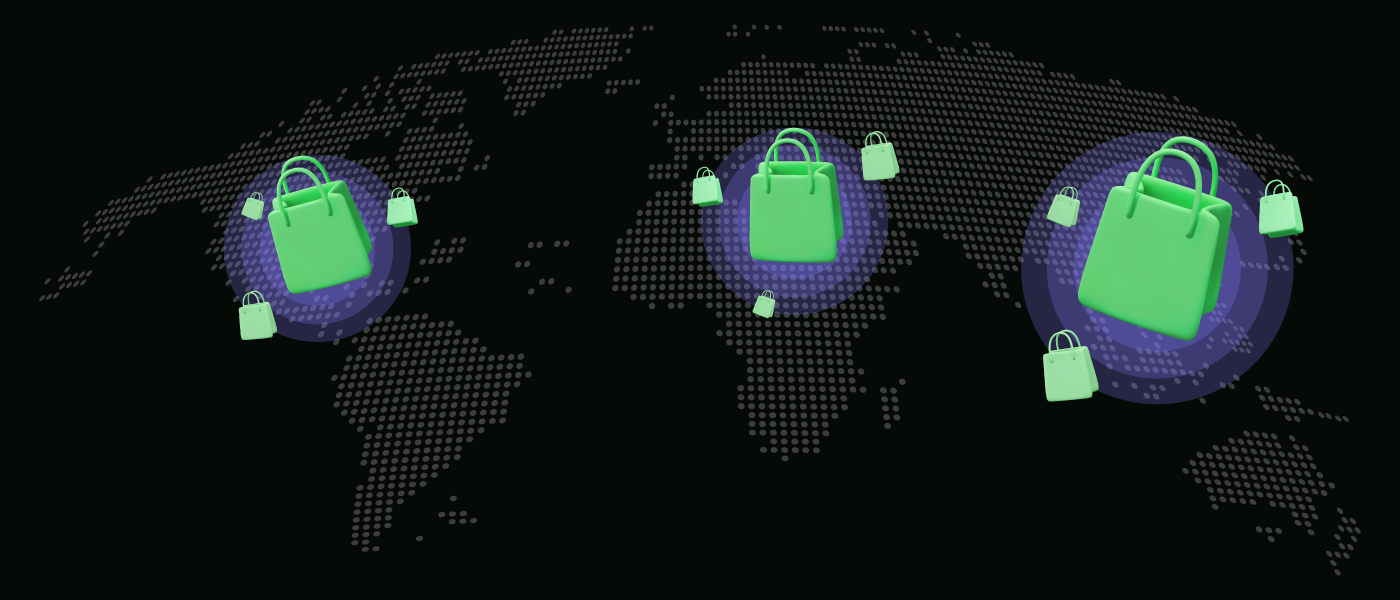Making an E-Commerce store is a great way to start your own business or add a new element to your brick-and-mortar location. It is easy to get started with a small inventory, a bit of seed money, and just one employee. However, if you really want your store to thrive and grow you have to be planning long term.
E-Commerce is a highly competitive industry due to the ease of entry and unfortunately, a large number of E-Commerce stores fail quickly. Here are the six most common reasons E-Commerce stores fail and how you can avoid them.
Reasons Why E-commerce Stores Fail
1. E-commerce stores fail because they are not getting enough traffic
Even if your store has the best products on the market, the nicest website, perfect pricing, and easy checkout processes, it won’t matter if potential customers are not seeing the site. Traffic is the biggest driving factor for sales and ROI so it is important to put in the work to drive people to your site. The best ways to do this are through inbound marketing or content marketing, paid media ads, and engaging with the public through your social media.
Social media advertising is a great way to make sure your advertising efforts are reaching the target audience that will be the most likely to convert. Oftentimes, you can run social media campaigns on your own to reach a large population for a very low cost. Facebook, for example, has over 1.84 billion daily users worldwide, with 200 million small businesses globally using the sites sophisticated targeting algorithms. This site, as well as the other popular social media sites such as Instagram, TikTok and Twitter, empowers entrepreneurs to use this inexpensive and simple way to drive those users to your E-Commerce site.
Inbound marketing is the method of using other forms of content such as written pieces to bring users to your website organically. One of the most common forms of inbound marketing is creating a blog page. If you write content about your industry or products it is just another way that a potential customer can find our business and want to learn more. Any business with a greater volume of content will rank higher on google search results and other SEO-based systems.
2. E-commerce stores fail because they fail to rank on Google
Why should you care about Search Engine Optimization (SEO) and Google rankings? Well, those sites that appear at the top of Google’s search results page end up grabbing 36.4% of the traffic missed by lower-ranking results. Implementing SEO best practices such as shorter URLs, making links shareable, simplifying the customer’s journey, splitting up blocks of text, using high-quality photos, etc. will help you reach the top of the search results page.
Do your research to improve your website’s SEO ranking before you start your E-Commerce business. If your business is already up and running then you can go in and make key changes towards optimization that will drastically improve it. By leveraging key ranking factors you will increase visibility and clicks, and in turn, conversions. The end-all-be-all for E-Commerce stores should always be to convince someone to buy into your product, and SEO is a huge driving force you do not want to overlook.
3. E-commerce stores fail because they have unappealing product descriptions and photos
People love to shop online due to the convenience and large variety of products and services available. However, the biggest disadvantage to online shopping is the fact that you cannot see the product in person. A buyer has to feel completely confident that they know enough about what they are buying in order to go through with the purchase.
In order to make sure your prospective buyer feels comfortable your site should have good quality photos of the product and detailed descriptions. In addition to making your site rank higher and generate more sales, good quality photos will make the buyer see your site as a professional one. Product descriptions should be to the point but still detailed. The person shopping does not want to read a novel about the product but they should know everything they need to after a glance at the description.
Some additional elements that improve the quality of an E-Commerce website and also the likelihood to make a sale is having product reviews and a commonly asked questions section. Reviews make your website look more trustworthy because prospective buyers can read about other’s first-hand experiences working with you. The commonly asked questions section shows that you are being up-front about the product and want your buyers to be informed. It is also a good way to provide more product details without overcrowding the description section.
4. E-commerce stores fail because they have poor website design and functionality
As we discussed earlier, the biggest motivator for buyers to shop online is how convenient it is to do so. If your E-Commerce website is hard to navigate, that convenience goes out the window and they will move on to the competition’s better functioning sites. Considering there are so many competitors in the E-Commerce industry it is crucial that your site is comparable as far as functionality and aesthetics if you hope to compete.
Consumers prefer to shop on modern and attractive websites that are easy to understand and function as they should. If each page takes 20 seconds or longer to load or a buyer can’t find the checkout button they are going to leave your store instead of taking the time to wait or look around the site. Troubleshoot your site by pretending to be a shopper and going through each page. Would someone that has never seen this website find it easy to navigate? Would the layout and images be appealing to a prospective customer? If not, it may be time to make some changes.
5. E-commerce stores fail because they are not considering the competition
Considering the competition is important in every element of E-Commerce sales, not just when designing your website. With so many E-Commerce giants out there like Shopify, Lazada, Amazon, and Shoppee it is rare to have something that is completely original and that is okay. Focus your energy on what your E-Commerce site does differently. Typically, one of the main things to capitalize on is the ability to have personal relationships with buyers because the huge sellers can never truly bring that aspect to their sites.
In addition to creating a unique customer experience, try to focus your inventory around products that are not too mainstream. If you are selling name-brand electronics you will end up competing with huge retailers. Instead, focus on a niche product and create a cohesive brand image for your company.
6. E-commerce stores fail because shipping costs are too high
Lastly, when you are competing with E-Commerce goliaths it is hard to keep comparable shipping costs and delivery times, but it is extremely important to get your rates in a comparable bracket. A major upside to online shopping today is how quickly we can receive products after purchasing them. Most online buyers do not think to order products weeks in advance because they are used to Amazon’s two day shipping policies.
There are a few ways to lower shipping costs. Automating your shipping processes will cut back on labor and costs. Automation can be done painlessly by partnering with a third-party logistics company like LOCAD. LOCAD is an established shipper which means they have built relationships with currier service providers and can offer discounted rates. In addition, LOCAD offers access to a global distribution fulfillment network which will allow you to localize your fulfillment strategy, bringing your products that much closer to the buyer. By integrating this personalized network of warehouse and fulfillment centers you will lower costs and delivery times.
LOCAD also offers a personalized dashboard that gives you access to real-time analytics on your orders and inventory. This dashboard makes it easy to fine-tune your forecasting so you never have to worry about losing a sale due to low inventory levels, nor waste money warehousing stock that isn’t moving. LOCAD makes it easy to stock, store, and ship your products so you can focus on growing your E-Commerce business successfully.











